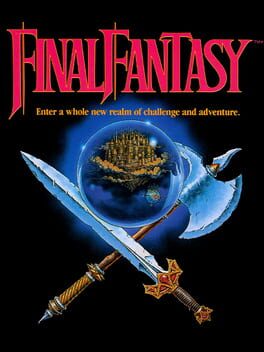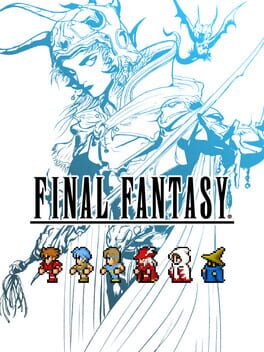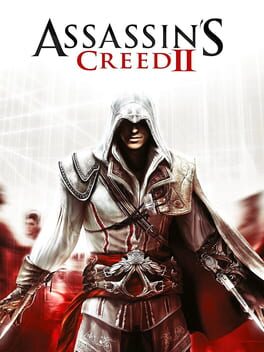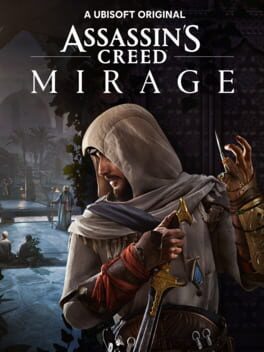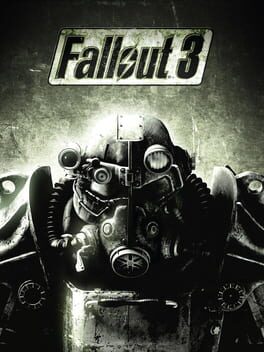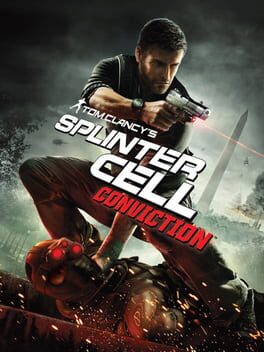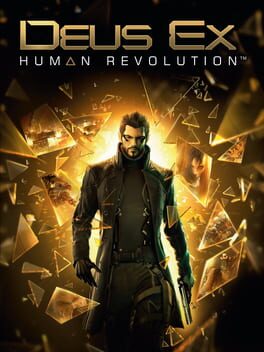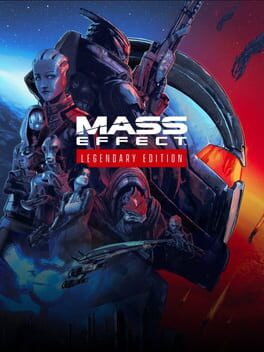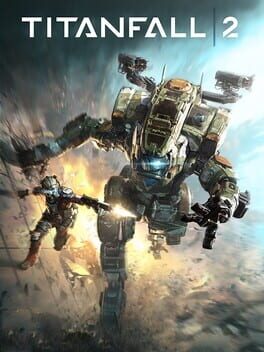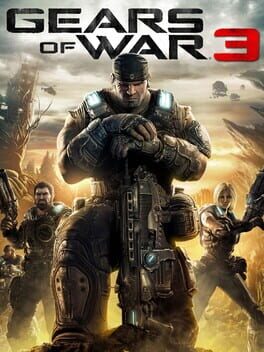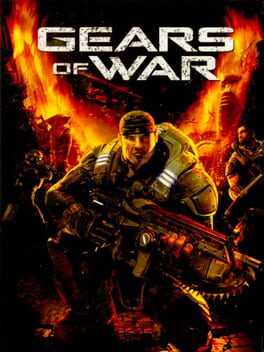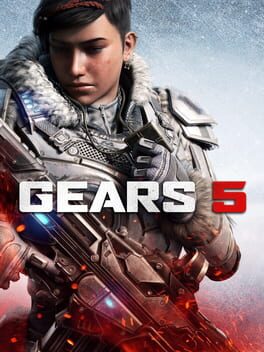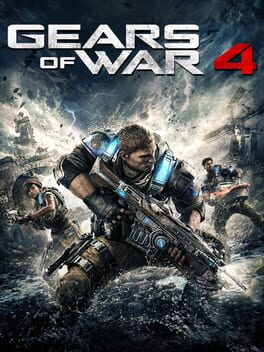ArcaneCrystal
1987
I played the "Restored" romhack released by AstralEsper: https://www.romhacking.net/hacks/1631
Even in 1987, Final Fantasy distinguishes itself by being pretty and smooth and polished. The hero sprites, enemy sprites, and little strip of background go a long way to making an evocative battle screen. The setting is a fun mishmash of genres, and I like how brief and direct the NPC dialogue is.
I really like that attacks on dead enemies don't automatically retarget. It forced me to become familiar with enemy health pools, and made basic attacking a little more thoughtful. This is a game of resource management, and not wasting your attacks is another resource to manage, alongside health, spell slots, and items.
The pacing was also just about perfect for me. I went as far as I could into a dungeon until I felt I had to turn back, barely made it back to town, then stocked up and made it further the next time. This was a much more satisfying loop to me than grinding. The final dungeon had me use every item and spell slot I had, and I just barely beat Chaos at level 29. I ran out of potions before beating Lich, and had to manage my health with healing item-spells for the rest of the dungeon.
Even so, the post-airship game is a lot easier than the first half, and I was quickly drowning in more equipment and gil than I knew what to do with. Even in this version that fixes a lot of the infamous bugs, half the spells are useless or redundant. This is mostly fine for a game that's more about the endurance of a long dungeon crawl than about the combat itself, but I'm excited to see what the sequels do with this solid foundation.
Even in 1987, Final Fantasy distinguishes itself by being pretty and smooth and polished. The hero sprites, enemy sprites, and little strip of background go a long way to making an evocative battle screen. The setting is a fun mishmash of genres, and I like how brief and direct the NPC dialogue is.
I really like that attacks on dead enemies don't automatically retarget. It forced me to become familiar with enemy health pools, and made basic attacking a little more thoughtful. This is a game of resource management, and not wasting your attacks is another resource to manage, alongside health, spell slots, and items.
The pacing was also just about perfect for me. I went as far as I could into a dungeon until I felt I had to turn back, barely made it back to town, then stocked up and made it further the next time. This was a much more satisfying loop to me than grinding. The final dungeon had me use every item and spell slot I had, and I just barely beat Chaos at level 29. I ran out of potions before beating Lich, and had to manage my health with healing item-spells for the rest of the dungeon.
Even so, the post-airship game is a lot easier than the first half, and I was quickly drowning in more equipment and gil than I knew what to do with. Even in this version that fixes a lot of the infamous bugs, half the spells are useless or redundant. This is mostly fine for a game that's more about the endurance of a long dungeon crawl than about the combat itself, but I'm excited to see what the sequels do with this solid foundation.
2021
a very charming example of an rpg that is primarily about resource management across a long journey or dungeon crawl. i really enjoyed the first third of this game, up through the marsh cave, because i had to balance my resources carefully, making decisions such as "is this battle worth fighting?" "should i use this item now?" "should i use this spell now?" "how far can i get before i need to go back to town?"
however, the default level curve on this version shot me way too high after that, and even after turning it down to 0.5x EXP i didn't settle back into "interesting gameplay" until facing tiamat. but that did leave me at the perfect level for the final dungeon and boss to be genuinely challenging. if i played this again i would definitely leave 0.5x EXP on the whole time.
i wish there was more overworld traversal and less dungeon, because i really liked the rhythm of making camp during an overland journey, but found the dungeon layouts lackluster. it's clear that the intended design is to wander a lot and hit a lot of dead ends but eventually stumble into very valuable treasure chests, but in this version there is a map so you never get lost, and there's even a checklist for chests so you never miss one. this mildly satisfies a completionist impulse, and certainly makes it easier to be a completionist, but at the cost of making so much of the dungeon redundant, filled with easy-to-find chests that gave me more valuable items than i knew what to do with.
great graphics and sound, cool setting made of so many disparate genres, and vancian magic that makes spells feel valuable. i love that npc dialogue is very to the point, which makes it easy to remember their directions and hints for sidequests. makes me interested in playing the nes version for a less breezy experience
however, the default level curve on this version shot me way too high after that, and even after turning it down to 0.5x EXP i didn't settle back into "interesting gameplay" until facing tiamat. but that did leave me at the perfect level for the final dungeon and boss to be genuinely challenging. if i played this again i would definitely leave 0.5x EXP on the whole time.
i wish there was more overworld traversal and less dungeon, because i really liked the rhythm of making camp during an overland journey, but found the dungeon layouts lackluster. it's clear that the intended design is to wander a lot and hit a lot of dead ends but eventually stumble into very valuable treasure chests, but in this version there is a map so you never get lost, and there's even a checklist for chests so you never miss one. this mildly satisfies a completionist impulse, and certainly makes it easier to be a completionist, but at the cost of making so much of the dungeon redundant, filled with easy-to-find chests that gave me more valuable items than i knew what to do with.
great graphics and sound, cool setting made of so many disparate genres, and vancian magic that makes spells feel valuable. i love that npc dialogue is very to the point, which makes it easy to remember their directions and hints for sidequests. makes me interested in playing the nes version for a less breezy experience
2009
This has some of the best maps in the series! Just big enough to feel big, not big enough to be annoying to navigate. I really like the little bits of countryside around the cities, the San Gimignano towers, and the narrow alleyways of Venezia.
The climbing and parkour is just slow enough to provide a pleasant friction, you may at times be called upon to manually grab a handhold or do a side jump or have to shimmy to the side and go down then up to climb a building. However, any time the game wants to speed up the parkour, such as during a chase sequence, the fiddliness of the controls inevitably gets in the way.
In general, this game's desire to be a faster-paced sequel conflicts with a control scheme that is designed for slow and patient movement. The game played best when I tried to meet it halfway as a game about standing in a crowd and observing guard patterns to know when to move. The music and visuals are pleasing enough that this was not a boring ask. But again and again it kept trying to have action sequences or long combat sequences that were just frustrating. The combat finisher animations are cool, but not cool enough to last the whole game.
The story is also kind of a patchwork mess. It starts strong in Firenze with clear motivations for Ezio and character growth inspired by the people around him, but in the second half of the game the targets become increasingly distant from the original revenge plot, and there's a bunch of awkward time jumps where Ezio seems to have gotten character development offscreen. But the Vault is still one of the coolest things to happen in the series, so at least it finishes strong.
The climbing and parkour is just slow enough to provide a pleasant friction, you may at times be called upon to manually grab a handhold or do a side jump or have to shimmy to the side and go down then up to climb a building. However, any time the game wants to speed up the parkour, such as during a chase sequence, the fiddliness of the controls inevitably gets in the way.
In general, this game's desire to be a faster-paced sequel conflicts with a control scheme that is designed for slow and patient movement. The game played best when I tried to meet it halfway as a game about standing in a crowd and observing guard patterns to know when to move. The music and visuals are pleasing enough that this was not a boring ask. But again and again it kept trying to have action sequences or long combat sequences that were just frustrating. The combat finisher animations are cool, but not cool enough to last the whole game.
The story is also kind of a patchwork mess. It starts strong in Firenze with clear motivations for Ezio and character growth inspired by the people around him, but in the second half of the game the targets become increasingly distant from the original revenge plot, and there's a bunch of awkward time jumps where Ezio seems to have gotten character development offscreen. But the Vault is still one of the coolest things to happen in the series, so at least it finishes strong.
2023
deception shatters innocence!!! lie or die!!! quite simply one of the best souls games. this one asks you to guard, parry, and dodge all in the same fight. very friendly to heavy builds, which is what i've been hoping for out of one of these. great level design, incredible sound design, and a wonderfully pro-lying narrative
2008
i really like the painted-on lights and bloomy tones of this, it works surprisingly well with the low-res 360 textures to make the world feel both worn-down and irradiated.
vats pausing time makes even small encounters feel long in a good way,, it's almost turn-based in how it becomes about managing numbers and bars. and it never stops being fun to see a bullet take off a guy's head in slow motion
the perks and skills kinda suck. every time i leveled up i felt like i was taking the "least underwhelming" option. but they designed a few neat quests, like the replicated man and tranquility lane.
vats pausing time makes even small encounters feel long in a good way,, it's almost turn-based in how it becomes about managing numbers and bars. and it never stops being fun to see a bullet take off a guy's head in slow motion
the perks and skills kinda suck. every time i leveled up i felt like i was taking the "least underwhelming" option. but they designed a few neat quests, like the replicated man and tranquility lane.
this is obviously a huge departure from previous games, less of a stealth game and more of a cover shooter with melee takedowns, of the vein that would soon be popularized by the last of us. but, judging this on its own merits, it's pretty solid!
i really like the visual style. light and color feel threatening, if you see color that means you need to shoot something to get back to the safety of black-and-white. the aggressive auto hdr on series x really enhances this aspect, because the lights are so blindingly bright that i felt compelled to shoot them even if i didn't really need to.
the "immersive hud" does feel a lot more dramatic that having text on the upper left corner, and the cover-to-cover movement markers are probably the best of any cover shooter, allowing for easy diagonal movement.
unlike a lot of these "semi-stealth" games, the gadgets actually feel useful, and the encounters are designed for them. cover shooting is all about "getting into a good position", and the mark and execute system slides perfectly into that, because the game becomes about choosing your marks and carefully finding the best position to take them all out at once.
the game is pleasantly short, but there are still pacing-killers like the interrogations, which get old before the first one is even over, and the instantly forgettable storyline. i understand that the shakycam is trying to capture sam's anger and frustration, but it's excessive to the point of comedy. the only time sam's character is effectively communicated is when he gets so pissed off that he gets infinite free mark and execute.
i really like the visual style. light and color feel threatening, if you see color that means you need to shoot something to get back to the safety of black-and-white. the aggressive auto hdr on series x really enhances this aspect, because the lights are so blindingly bright that i felt compelled to shoot them even if i didn't really need to.
the "immersive hud" does feel a lot more dramatic that having text on the upper left corner, and the cover-to-cover movement markers are probably the best of any cover shooter, allowing for easy diagonal movement.
unlike a lot of these "semi-stealth" games, the gadgets actually feel useful, and the encounters are designed for them. cover shooting is all about "getting into a good position", and the mark and execute system slides perfectly into that, because the game becomes about choosing your marks and carefully finding the best position to take them all out at once.
the game is pleasantly short, but there are still pacing-killers like the interrogations, which get old before the first one is even over, and the instantly forgettable storyline. i understand that the shakycam is trying to capture sam's anger and frustration, but it's excessive to the point of comedy. the only time sam's character is effectively communicated is when he gets so pissed off that he gets infinite free mark and execute.
i really love the conversation battles here, and they're much much better without the omegaverse aug. it's fun to just have to read tone and expression.
the bloomy black and gold visual style is very nice, feels like i'm inside of a beehive.
the levels are nice little immersive sim mazes with plenty of alternate paths. the augs are largely underwhelming, there's not really any "cool" one. the ai is very dumb to the point where it's very easy to ghost the levels just with simple movement and no gadgets, but that's kind of fun in its own way. i found myself enjoying the game the most while playing it as a simplified rainbow six vegas, where it was all about getting into a good position and using my scarce ammo efficiently.
it would be nice if the story had any redeeming qualities other than the jensen/pritchard sexual tension.
the bloomy black and gold visual style is very nice, feels like i'm inside of a beehive.
the levels are nice little immersive sim mazes with plenty of alternate paths. the augs are largely underwhelming, there's not really any "cool" one. the ai is very dumb to the point where it's very easy to ghost the levels just with simple movement and no gadgets, but that's kind of fun in its own way. i found myself enjoying the game the most while playing it as a simplified rainbow six vegas, where it was all about getting into a good position and using my scarce ammo efficiently.
it would be nice if the story had any redeeming qualities other than the jensen/pritchard sexual tension.
all of these games are pretty good hero shooters with fun abilities, cool sci-fi aesthetics, and memorable levels.
1 has this unique consolized crpg vibe to it, where the cutscenes are still very simple in a way that makes them feel like classic video game puppetry, and the levels are laid out as if an isometric game was brought into an over-the-shoulder view. you can make some cool custom weapons with mods, like a rocket launcher sniper rifle, or an assault rifle that fires explosive rounds but never overheats. because each power has individual cooldown, you can basically fire them off constantly if you have enough on-hand.
2 is a much more balanced game, which also means it's less fun to break. each class feels much more distinct, and charge is one of the best powers in video games. the guns all feel much better, but unfortunately because armor and shields tend to be strong and immune to many powers, many powers just feel useless on higher difficulties. the structure of doing a bunch of unrelated episodic missions to prepare for one big mission is neat.
3 focuses much more on using powers to make exploding combos, which is definitely my favorite gameplay of the series, but this comes at the cost of the guns generally feeling weaker. the vanguard, for example, is much better off focusing on power combo damage rather than shotgun damage. the cinematic ambitions of mass effect are at their best here, with camerawork and animation that feels like it's from an experienced team.
so, all pretty positive so far! i definitely recommend these if you are into shooters that have powers. the problem is that these games also have a large and unignorable focus on story and dialogue, and the story and dialogue is generally very bad.
1 is a particularly mean-spirited and emotionally hollow game, where nearly every conversation revolves around shallowly drawn racial conflict in an attempt to seem thought-provoking. your conversations with companions are mostly dry exposition with little personal characterization, and when they rarely speak to each other it's usually just another exchange of racial barbs. it's so unfortunate because i think this game is really cool when nobody is speaking, but it insists on having a lot of dialogue.
2 basically doesn't have a main story and instead focuses on a bunch of little character vignettes, which is mostly for the better because bioware works better when they have to tell the story quick and shallow, rather than long and shallow. but having 12 companions just highlights how weird it is that they almost never speak to each other or have any relationships with each other. and even in these smaller stories, mass effect cannot escape its obsession with the questions of "is this genocide good or bad?" and "is this unethical experiment good or bad?"
3's main story unfortunately only focuses deeper on those hollow themes, while at the same time trading in much of its mean-spiritedness for clumsy melodrama. however, it definitely has the best character writing, and your companions will even have normal conversations with each other sometimes!
all in all, i really wish i had a "skip cutscene completely" button for these.
1 has this unique consolized crpg vibe to it, where the cutscenes are still very simple in a way that makes them feel like classic video game puppetry, and the levels are laid out as if an isometric game was brought into an over-the-shoulder view. you can make some cool custom weapons with mods, like a rocket launcher sniper rifle, or an assault rifle that fires explosive rounds but never overheats. because each power has individual cooldown, you can basically fire them off constantly if you have enough on-hand.
2 is a much more balanced game, which also means it's less fun to break. each class feels much more distinct, and charge is one of the best powers in video games. the guns all feel much better, but unfortunately because armor and shields tend to be strong and immune to many powers, many powers just feel useless on higher difficulties. the structure of doing a bunch of unrelated episodic missions to prepare for one big mission is neat.
3 focuses much more on using powers to make exploding combos, which is definitely my favorite gameplay of the series, but this comes at the cost of the guns generally feeling weaker. the vanguard, for example, is much better off focusing on power combo damage rather than shotgun damage. the cinematic ambitions of mass effect are at their best here, with camerawork and animation that feels like it's from an experienced team.
so, all pretty positive so far! i definitely recommend these if you are into shooters that have powers. the problem is that these games also have a large and unignorable focus on story and dialogue, and the story and dialogue is generally very bad.
1 is a particularly mean-spirited and emotionally hollow game, where nearly every conversation revolves around shallowly drawn racial conflict in an attempt to seem thought-provoking. your conversations with companions are mostly dry exposition with little personal characterization, and when they rarely speak to each other it's usually just another exchange of racial barbs. it's so unfortunate because i think this game is really cool when nobody is speaking, but it insists on having a lot of dialogue.
2 basically doesn't have a main story and instead focuses on a bunch of little character vignettes, which is mostly for the better because bioware works better when they have to tell the story quick and shallow, rather than long and shallow. but having 12 companions just highlights how weird it is that they almost never speak to each other or have any relationships with each other. and even in these smaller stories, mass effect cannot escape its obsession with the questions of "is this genocide good or bad?" and "is this unethical experiment good or bad?"
3's main story unfortunately only focuses deeper on those hollow themes, while at the same time trading in much of its mean-spiritedness for clumsy melodrama. however, it definitely has the best character writing, and your companions will even have normal conversations with each other sometimes!
all in all, i really wish i had a "skip cutscene completely" button for these.
2016
I appreciate this campaign way more now than I did in 2016. All killer no filler pacing, the air mobility and wallrunning makes it so fun just to move around, it's really smart that enemies are accurate but turn slowly so that the key to survival is to always keep moving. Sounds great, looks great, one of the best shooter campaigns ever and certainly a masterpiece of shooter-platformers.
2011
the first two acts of this are the highest highs in the series. the shift in the status quo almost makes it feel like a whole new series, there's a ton of new enemies and weapons all of which are cool, and the level design is clever and inventive. there's stalks bursting out of the ground and leaving a menacing presence even after you kill them, individual locust jumping out of the sand at a perfect arc for a bayonet charge, you've got gunkers filling the entire screen with an explosion, you've got all manner of strange new creatures and biohazards.
unfortunately, the anvil gate to mercy to char segment is filled with repetitive levels that drag on too long and have bland encounter design even to the point of "zombies rushing at you". the docks and azura bring it back a bit, but it never quite reaches those highs of act 1 and 2 again. also the dialogue is the worst it has ever been.
but! damn those new monsters and weapons are cool, and many of them never appear again in the series. this is certainly a unique entry, and it feels more different from what came before than 4 and 5 do.
unfortunately, the anvil gate to mercy to char segment is filled with repetitive levels that drag on too long and have bland encounter design even to the point of "zombies rushing at you". the docks and azura bring it back a bit, but it never quite reaches those highs of act 1 and 2 again. also the dialogue is the worst it has ever been.
but! damn those new monsters and weapons are cool, and many of them never appear again in the series. this is certainly a unique entry, and it feels more different from what came before than 4 and 5 do.
2006
really surprised by this one! the dramatic contrast between light and dark makes for the best visuals of the series. there's a very "first console game made by a pc studio" vibe to this, where the story is sparse, the lore is extensive and unexplained, and the levels are clearly individually designed rooms strung together, each a little challenge taking a few minutes to clear. i love that the characters aren't talking constantly. the scenario variety is not as dramatic as the sequels, which are "cinematic setpiece" games, but each chapter still feels distinct from the last both in setting and encounter design.
cover is not just a place to hide and reload, but an avenue of relatively safe movement where you can flank and reposition. it is enforced by high incoming damage, and there are few enemies per encounter, but each of them are dangerous enough to matter, and spongy enough to last. this makes headshots, chainsaw kills, and closing emergence holes important and rewarding. it's easy to see why this was a hit in 2006, and still a fan favorite now.
cover is not just a place to hide and reload, but an avenue of relatively safe movement where you can flank and reposition. it is enforced by high incoming damage, and there are few enemies per encounter, but each of them are dangerous enough to matter, and spongy enough to last. this makes headshots, chainsaw kills, and closing emergence holes important and rewarding. it's easy to see why this was a hit in 2006, and still a fan favorite now.
2019
this really wowed me at first, but the more i played the more its flaws became apparent. the mass effect powers are cool, but they can't make up for the repetitive encounter design. there is some real characterization in here, but it all suddenly fizzles out in the second half. the skiff is fun to drive, but even this restrained open world can't help feeling like wandering between checkboxes.
that sounds pretty negative, but i do still mostly like the linear parts of this game, and i think the story of act 1 is the best the series has ever been.
that sounds pretty negative, but i do still mostly like the linear parts of this game, and i think the story of act 1 is the best the series has ever been.
2016
it's funny how inspired by uncharted this is, from the quippy banter to the style of setpieces.
the prologue and final chapters are really cool, and the first two acts are breezy and successfully make the world feel like it has moved on before being invaded by the swarm. but the mine and the dam back to back are a real pacing killer. the chapters here all feel the same, with little to mix up the scenario.
i appreciate that they wanted to tell a smaller story this time, but the characterization is as shallow as ever which just makes the whole thing feel thin. the plot is basically a retread of dom and maria, except this time the tearful woman euthanasia is even more drawn out.
the prologue and final chapters are really cool, and the first two acts are breezy and successfully make the world feel like it has moved on before being invaded by the swarm. but the mine and the dam back to back are a real pacing killer. the chapters here all feel the same, with little to mix up the scenario.
i appreciate that they wanted to tell a smaller story this time, but the characterization is as shallow as ever which just makes the whole thing feel thin. the plot is basically a retread of dom and maria, except this time the tearful woman euthanasia is even more drawn out.
